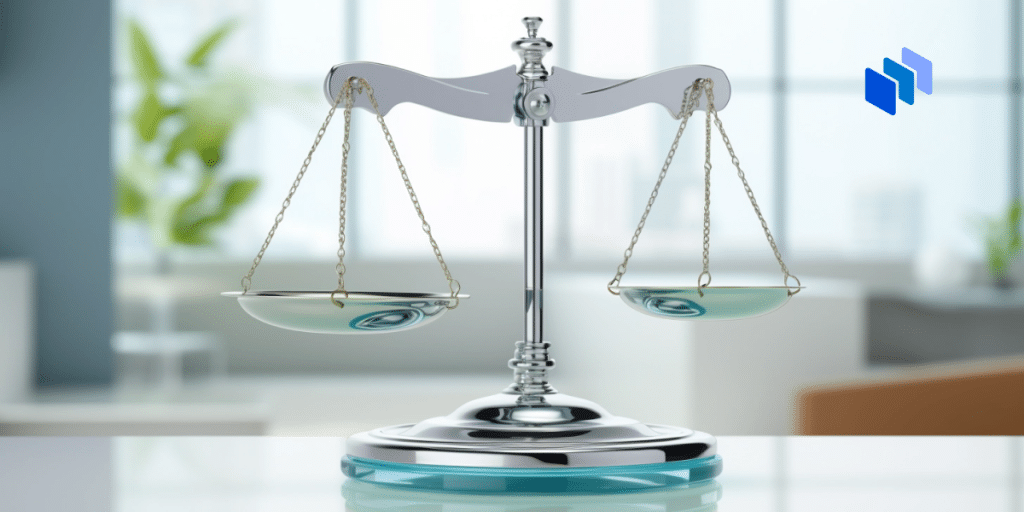In the rapidly evolving world, the forefront of technological progress is marked by the increasing autonomy of machines, particularly in the domain of artificial intelligence (AI).
This concept signifies the capability of AI systems to operate and make decisions with minimal or no human intervention, allowing machines to think and act independently.
The importance of AI autonomy is profound and accompanied by a sense of excitement. It is more like visiting an unexplored territory, where machines driven by complex algorithms can now perform tasks once limited to human intelligence.
Imagine self-driving cars confidently navigating streets or virtual assistants seamlessly anticipating your needs before you even express them.
It paves the way for unlimited possibilities — but fuels significant debate concerning AI autonomy and control.
Why Do We Need to Debate AI Autonomy?
The discussion on AI autonomy and control is paramount as it revolves around shaping the future. It aims to comprehend how we can utilize the immense potential of AI while safeguarding against potential risks.
As AI systems become increasingly autonomous, maintaining a balance between human control and AI independence becomes pivotal in ensuring this technology’s responsible development and utilization. In a world where AI is increasingly integrated into our daily lives, this debate may lead to harmonious coexistence between humans and intelligent machines.
Traversing the AI Autonomy Spectrum
To gain a deeper understanding of the concept, let us imagine it as a spectrum that defines the extent of AI’s autonomous capabilities. At one end lies AI that can be considered a skilled worker, proficient in specific tasks yet limited in other aspects. As we progress along this spectrum, we encounter AI that resembles a smart thinker, capable of learning and making decisions independently.
In the middle of this spectrum, we experience the practical application of AI in our daily lives. This AI aids us in scheduling, provides recommendations, and anticipates our preferences — a digital companion that simplifies our lives.
However, the most exciting aspect lies at the other end of the spectrum, where super-intelligent AI resides. It possesses the ability to undertake complex tasks without human intervention. This revolutionary potential enables AI to tackle laborious jobs while enhancing efficiency, raising creativity, and contributing to crucial domains like science and medicine.
The prospect of complete AI independence is exciting, allowing for expanded capabilities. Yet, as we approach this goal, we must also consider the constraint of ensuring AI’s safe and fair utilization. The transformation towards full AI autonomy holds immense promise but demands wisdom and precaution.
AI Autonomy Presents Benefits and Challenges
On the positive side, AI’s increasing autonomy enables it to make intelligent decisions, analyzing vast amounts of data to identify patterns and trends humans may overlook. Enhancing decision-making processes can potentially revolutionize industries such as healthcare and finance.
For instance, think about an AI-powered medical system capable of swiftly and accurately diagnosing diseases, potentially saving lives. Likewise, in a financial scenario, AI can predict market trends with high accuracy, assisting investors in making well-informed decisions.
Additionally, AI autonomy boosts productivity as machines can work tirelessly on repetitive tasks without requiring rest or sleep. They effortlessly handle massive workloads, streamlining operations and reducing costs, thus elevating industries.
However, achieving AI autonomy requires a delicate balance. There are inherent risks, including losing human control over AI systems. When AI can make decisions independently, predicting their actions becomes challenging, raising ethical concerns regarding accountability for their choices and actions.
Another issue is the potential displacement of jobs. As AI becomes more autonomous, tasks previously performed by humans may become automated, leading to job losses. This highlights the complexity of the ongoing debate surrounding AI autonomy.
Considering the pros and cons, navigating the path to AI autonomy requires careful consideration and thoughtful decision-making.
The Importance of Regulations and Governance
The autonomous Uber accident in Tempe, Arizona, which led to the death of a pedestrian, emphasizes the critical need for regulations and governance in AI autonomy. This incident highlights the intricate relationship between AI autonomy and human oversight, revealing challenges in accountability. It stresses the urgent need for clear autonomous vehicle technology regulations as AI systems become increasingly autonomous.
Imagine a world where self-driving cars are common, ensuring safe journeys and eliminating accidents like the one in Tempe. To achieve this vision, robust regulations are necessary to ensure the safety of AI-driven technologies on our roads.
However, the current regulatory model must be more cohesive across different jurisdictions, leading to complexities. This necessitates a global consensus to harmonize regulatory approaches.
The global challenge of AI governance is substantial but essential for promoting worldwide ethical and responsible AI advancement. In the rapidly evolving AI scenario, robust regulations and global governance mechanisms are vital in ensuring safety and maintaining ethical control.
AI Curiosity, Readiness, and Teamwork Essentials
We are filled with curiosity and anticipation as we look into AI’s future. The progress of AI promises thrilling developments, and our role in shaping it is of utmost importance. We should not be mere spectators but active participants, making deliberate choices regarding the role of AI in our lives.
Preparing ourselves becomes essential as AI advances towards greater autonomy. It is not just a precaution but an absolute necessity to be ready. As AI becomes more self-reliant, we must exercise caution and responsibility in its utilization. Future challenges require us to equip ourselves with the knowledge and skills to navigate the ever-evolving AI landscape with agility.
This would lead to a world where everyone with AI literacy is equipped with the knowledge to harness AI’s capabilities for personal and professional growth.
Education and awareness are equally vital in this regard. Understanding AI, its capacities, and its limitations is like having a compass in an unknown region. Education empowers us, while awareness keeps us vigilant. Informed action lies at the crux of this vision.
When we examine the crystal ball of AI autonomy, it becomes clear that curiosity, preparedness, and information are essential. These qualities enable humans and AI to build a partnership that enhances human capabilities and holds promise for the future.
The Bottom Line
In this ever-evolving era of AI autonomy, the debate correctly takes center stage as it shapes the very essence of our future. As machines approach independence, the fine line between promise and peril becomes more apparent.
While the advantages are undeniable, challenges such as the loss of human control, ethical dilemmas, and potential job displacement loom large. To navigate this path successfully, robust regulations and global governance are essential.









